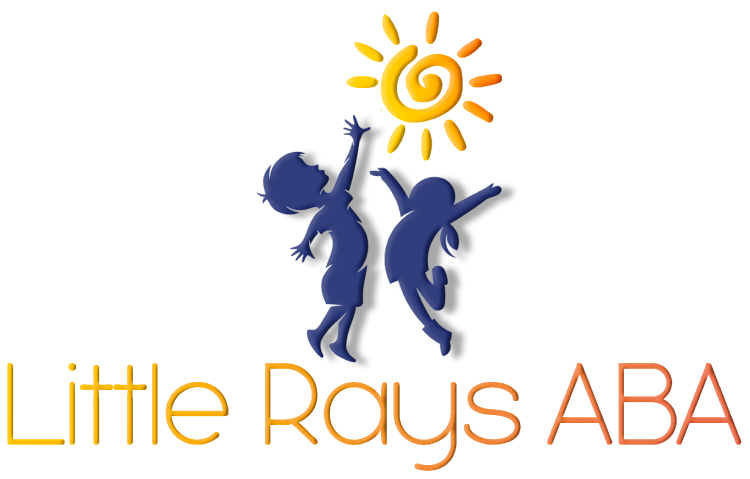What is World Autism Awareness Month?
World Autism Awareness Month, observed every April, is dedicated to increasing awareness, acceptance, and understanding of autism spectrum disorder (ASD). It serves as a time to educate the public about the challenges and strengths of individuals with autism while advocating for greater inclusivity in society.
The month kicks off with World Autism Awareness Day on April 2nd, a global initiative recognized by the United Nations. Throughout the month, organizations, advocates, and families engage in activities that promote awareness, acceptance, and support for individuals on the spectrum.
Why Autism Awareness Matters
Autism affects millions of individuals worldwide, with 1 in 36 children in the U.S. diagnosed with ASD, according to the CDC. Despite its prevalence, many misconceptions persist. Awareness helps dispel myths and encourages inclusive policies, better resources, and increased support for individuals with autism and their families.
Key Objectives of Autism Awareness Month:
- Increase Understanding: Educate the public about ASD and its impact on individuals and families.
- Encourage Acceptance: Foster a society that embraces neurodiversity and respects different ways of thinking and interacting.
- Promote Early Intervention: Highlight the importance of early diagnosis and intervention services, such as Applied Behavior Analysis (ABA) therapy.
- Advocate for Rights and Support: Push for policies that improve access to healthcare, education, and employment opportunities for individuals with autism.
Understanding Autism Spectrum Disorder (ASD)
Autism is a neurodevelopmental disorder characterized by differences in social communication, behavior, and sensory processing. It is referred to as a spectrum disorder because it affects individuals in varying degrees, from those with significant support needs to those who are highly independent.
Common Signs of Autism
- Difficulty with social interactions and communication
- Repetitive behaviors or intense focus on specific interests
- Sensory sensitivities (e.g., aversion to loud noises or bright lights)
- Preference for routines and difficulty with change
While these traits are common, every autistic individual is unique, with their own strengths and challenges.
How to Support the Autism Community
There are many ways to contribute to autism awareness and support individuals on the spectrum. Whether you are a parent, educator, employer, or community member, your efforts can make a difference.
1. Educate Yourself and Others
Learn about autism from reputable sources and share accurate information to help dispel common myths. Books, documentaries, and websites from autism organizations provide valuable insights.
2. Promote Inclusion and Accessibility
- Advocate for sensory-friendly environments in public spaces.
- Support inclusive education and workplace initiatives.
- Encourage businesses to implement autism-friendly policies.
3. Support Autism-Friendly Events
Many communities organize autism-friendly events during April, such as:
- Walks and Fundraisers: Participate in autism awareness walks to raise funds for research and support services.
- Light It Up Blue Campaign: Buildings and landmarks worldwide are lit in blue to promote autism awareness.
- Social Media Campaigns: Use hashtags like #AutismAwarenessMonth and #LightItUpBlue to spread awareness.
4. Encourage Early Diagnosis and Intervention
Early intervention can significantly improve outcomes for children with autism. Parents and caregivers should be aware of developmental milestones and seek professional guidance if concerns arise.
5. Advocate for Autism-Friendly Workplaces
Employment opportunities for autistic individuals are often limited due to a lack of understanding and accommodations. Encouraging businesses to create autism-friendly hiring practices can lead to greater inclusivity.
The Role of ABA Therapy in Supporting Individuals with Autism
One of the most effective evidence-based interventions for autism is Applied Behavior Analysis (ABA) therapy. ABA therapy focuses on improving social, communication, and behavioral skills through structured techniques.
Benefits of ABA Therapy:
- Enhances communication skills
- Reduces challenging behaviors
- Encourages social interactions
- Builds independence and daily living skills
ABA therapy is tailored to each individual's needs and can be implemented in various settings, including homes, schools, and specialized centers.
How Families Can Get Involved
1. Engage in Autism Advocacy
Join local and national autism advocacy groups to help push for better policies and support systems.
2. Create an Inclusive Home Environment
Simple adjustments, such as structured routines, visual schedules, and sensory-friendly spaces, can help autistic individuals feel more comfortable at home.
3. Connect with Other Families
Support groups provide parents and caregivers with valuable resources and emotional support. Connecting with other families going through similar experiences can be incredibly beneficial.
How Schools Can Promote Autism Awareness
Educators play a crucial role in fostering an inclusive learning environment. Schools can support autism awareness by:
- Implementing teacher training programs on ASD.
- Encouraging peer education programs to promote understanding among students.
- Creating individualized education plans (IEPs) tailored to the needs of autistic students.
The Future of Autism Advocacy
While significant progress has been made in autism awareness, more work is needed to ensure individuals with autism have access to equal opportunities. This includes:
- Expanding insurance coverage for autism therapies.
- Increasing research funding for better interventions.
- Strengthening legal protections for autistic individuals in education and employment.
Conclusion
World Autism Awareness Month 2025 is an opportunity to educate, advocate, and take action to support the autism community. By increasing understanding and fostering acceptance, we can create a more inclusive world for individuals with autism.
At Little Rays ABA, we are committed to supporting individuals with autism through evidence-based ABA therapy. Our goal is to empower children and families with the tools they need to thrive. Contact us today to learn more about our services and how we can help your child reach their full potential.
Frequently Asked Questions (FAQs)
What is the purpose of World Autism Awareness Month?
World Autism Awareness Month aims to increase public understanding of autism, promote acceptance, and advocate for better support and resources for autistic individuals and their families.
How can I participate in Autism Awareness Month?
You can participate by wearing blue on April 2nd (World Autism Awareness Day), joining autism advocacy events, sharing educational resources, and supporting autism-friendly initiatives in your community.
What are some common misconceptions about autism?
Some common misconceptions include the belief that all autistic individuals have intellectual disabilities or lack emotions. In reality, autism is a spectrum, and individuals have a wide range of abilities and emotional expressions.
Sources:
- https://www.cdc.gov/autism/data-research/index.html
- https://www.nimh.nih.gov/health/topics/autism-spectrum-disorders-asd
- https://www.autismspeaks.org/sensory-issues
- https://www.autismspeaks.org/applied-behavior-analysis
- https://www.autismspeaks.org/world-autism-awareness-day
Unlock Your Child's Potential with Expert ABA Therapy!
At Little Rays ABA, we provide compassionate, evidence-based ABA therapy to help children with autism thrive. Our personalized approach fosters growth in communication, social skills, and independence.
Get In Touch With Us Today to Get Started With ABA Therapy!
Related Posts
MENU
GET IN TOUCH
7117 San Salvador Dr Boca Raton, FL 33433
3200 Collins Ave Miami Beach, FL 33140





